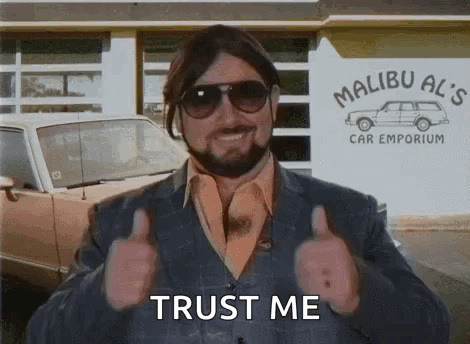8 Things to Know Before Buying a Used Car


Are you in the market for a used car? It can be an exciting and cost-effective choice, but it's important to be informed before making your purchase. Knowing the potential advantages and issues in buying used, such as the possibility of finding a great deal or running into costly repairs, is essential for making the right decision. Did you know that the used car market has been steadily growing over the past decade?
In fact, according to a recent report, it's estimated that by 2025, the used car market in the United States will be worth a staggering $1.5 trillion. With numbers like that, it's clear that many people are choosing used over new. And while it's a great option for many, it's crucial to do your due diligence before committing to a purchase. That means checking the vehicle history, getting an auto inspection, considering car financing options, and being mindful of ownership costs. With these tips in mind, you'll be on your way to making a smart and satisfying used car purchase
Understanding Vehicle History

When it comes to purchasing a used car, it's important to understand the vehicle's history to ensure you're making a wise investment. A vehicle history report can provide insight into important details such as accidents, ownership history, and any major repairs. Knowing these key elements can help you make an informed decision and avoid any unforeseen ownership costs. Obtaining a vehicle history report is simple and can often be done online through various providers. However, it's important to be aware of major red flags such as salvage titles, flood damage, or odometer tampering.
By using a vehicle history report as a guide and conducting a thorough auto inspection, you can have peace of mind in knowing you're making a smart purchase. Additionally, understanding the vehicle's history can also be useful when it comes to car financing as lenders may require proof of a vehicle's condition and ownership history before approving a loan. By taking the time to fully understand a car's history before making a purchase, you can save yourself from potential headaches and financial burdens in the future.
Importance of a Thorough Inspection

A thorough inspection is crucial. An auto inspection is a detailed physical examination of the vehicle, and it is crucial to make sure everything is in working order. Key mechanical components should be examined such as the engine, transmission, and brakes. Getting a professional mechanic's opinion is recommended.
They can identify any issues that may not be immediately apparent. Don't forget to look into the vehicle's history and ownership costs. By ensuring all aspects of the vehicle are fully examined, buyers can make informed decisions and avoid unexpected costs in the future. Don't forget to factor in car financing, as ownership costs can add up quickly.
Test Driving the Car

Test driving a car is one of the most crucial steps in the used car purchase process. To conduct an effective test drive, there are a few things to keep in mind. First, assess the car's handling by driving it on a variety of roads - highways, surface streets, and winding roads - to get a sense of how it behaves in different situations. Next, test the braking by finding an empty parking lot and performing several "panic stops" to see how quickly the car comes to a halt.
Finally, pay close attention to the engine performance by accelerating and decelerating in different situations to determine if there are any unusual noises or behaviors. When considering comfort, space, and ergonomics, make sure to test out the car's seats, controls, and storage options. By being thorough during the test drive, and supplementing the information gathered with a vehicle history report, auto inspection, and consideration of car financing and ownership costs, you can ensure that you make an informed decision when purchasing a used car.
Checking for Recalls and Safety Issues

As a buyer looking to purchase a used car, it's essential to do your research and make sure you're making a safe and smart investment. One crucial step in this process is checking for any recalls or safety issues associated with the specific car model you're interested in. By reviewing the car's vehicle history and undergoing an auto inspection, you can ensure that any outstanding recalls are addressed before making the purchase.
Not only can this potentially save you money on costly repairs down the line, but it can also provide peace of mind knowing that you and your passengers will be safe on the road. It's also important to evaluate the car's current safety features and their condition, as well as any potential safety concerns that could be deal-breakers for you. By taking the time to thoroughly assess the car's safety features and potential issues, you can make an informed decision on your used car purchase that takes into account factors beyond just car financing and ownership costs. Trusting in the Luna voice, prioritizing safety in your car purchase will never steer you wrong.
Understanding Financing Options

Buying a used car can be a daunting experience, and finding the right financing option can make it even more challenging. Fortunately, there are several financing options available for used car purchases, and it's essential to explore and compare them before settling for one. LUNA offers resources that can help make the financing decision-making process more manageable. However, before getting started, it's necessary to complete other crucial steps such as checking the vehicle history, performing an auto inspection, and estimating the ownership costs.
Generally, financing terms and interest rates vary depending on the lender, your credit score, and the age of the car. A good credit score can help you secure a better interest rate, and LUNA's experts can provide useful tips for improving your score. They can also make the overall financing process simpler and more efficient. LUNA's innovative app enables buyers access to quotes from top carriers, checks rates at renewal for the best policy, and offers privacy protection. With LUNA, buyers can confidently navigate the financing process and get the coverage they need at a fair price.
Calculating Total Ownership Costs

If you're looking to be a savvy owner, calculating total ownership costs is a crucial part of the process. Beyond the initial purchase price, it's important to consider factors such as maintenance, repairs, insurance, and registration fees. Additionally, fuel efficiency needs to be taken into account as it can have a significant impact on long-term expenses.
It's never fun to be caught off guard by unexpected costs, so some planning ahead can soften the blow should something unexpected happen. If budgeting is a concern, there are a few tips to keep in mind. Consider the car's history, get a complete auto inspection, and think carefully about car financing options. By taking the time to do a bit of prep work before purchasing your used car, you can minimize the potential for unwelcome surprises, and better prepare yourself for all of the ongoing costs that come along with car ownership.
Negotiating the Purchase Price

Negotiating the purchase price of a used car can be a nerve-wracking experience, but with a little bit of strategy and the right approach, you can score a great deal. If you're serious about getting the best possible price, the first step is to do your research. Take time to establish the fair market value of the vehicle and review its vehicle history and inspection reports. Armed with this information, you can approach the seller with confidence and clarity.
Effective communication is key to successful negotiations, so make sure you're clear and concise in your offers and counteroffers. As you navigate the back-and-forth process of bargaining, keep in mind that there are ways to respond to counteroffers that can help you stay in control and achieve the outcome you desire. It's also important to consider the full ownership costs of the car, including financing, maintenance, and insurance. By approaching negotiations with a Luna voice—calm, cool, and collected—you can make a smart and savvy purchase that saves you money in the long run.
Buying a used car can be an exciting and carefully planned decision. There are a number of essential considerations to keep in mind when embarking on this journey. Start by conducting research and familiarizing yourself with the various types of vehicles available in the market.
Then, carefully examine the history of the vehicle's maintenance records, ownership records, accident history, and more. An auto inspection by a professional is also recommended to ensure the car is in good condition. When it comes to financing, it's best to shop around and find the best deal possible that suits your budget and credit score. Remember, in addition to the purchase price, there will be ongoing costs related to ownership, such as gasoline, insurance, and maintenance. By investing time and preparation into your research, you can approach the process with confidence and make an informed decision about your used car purchase.
